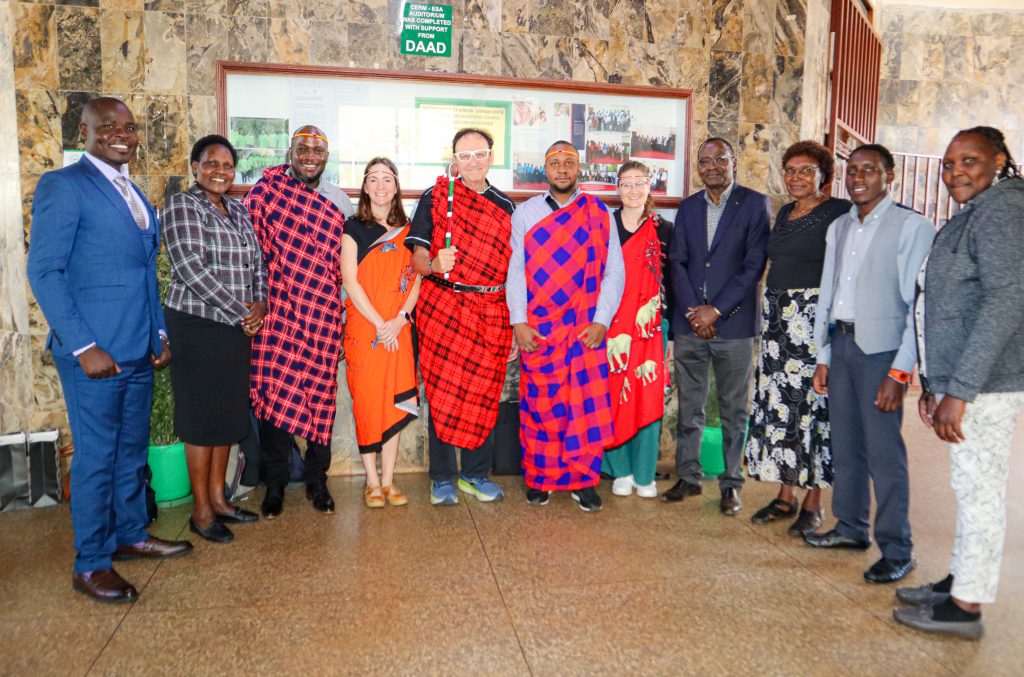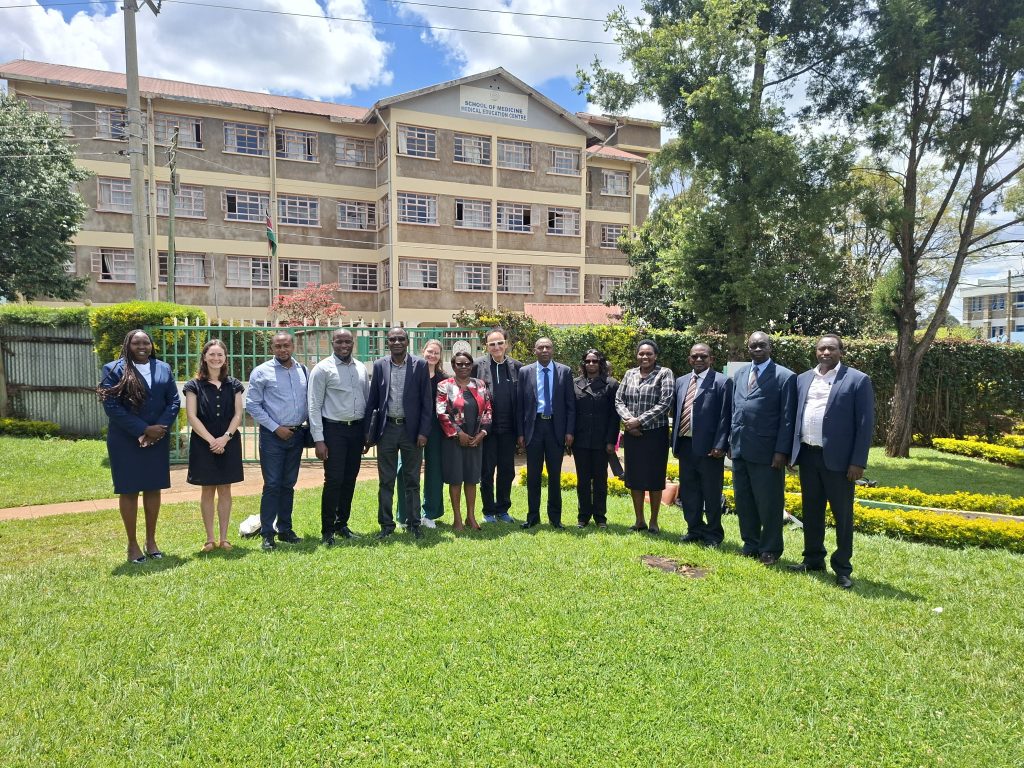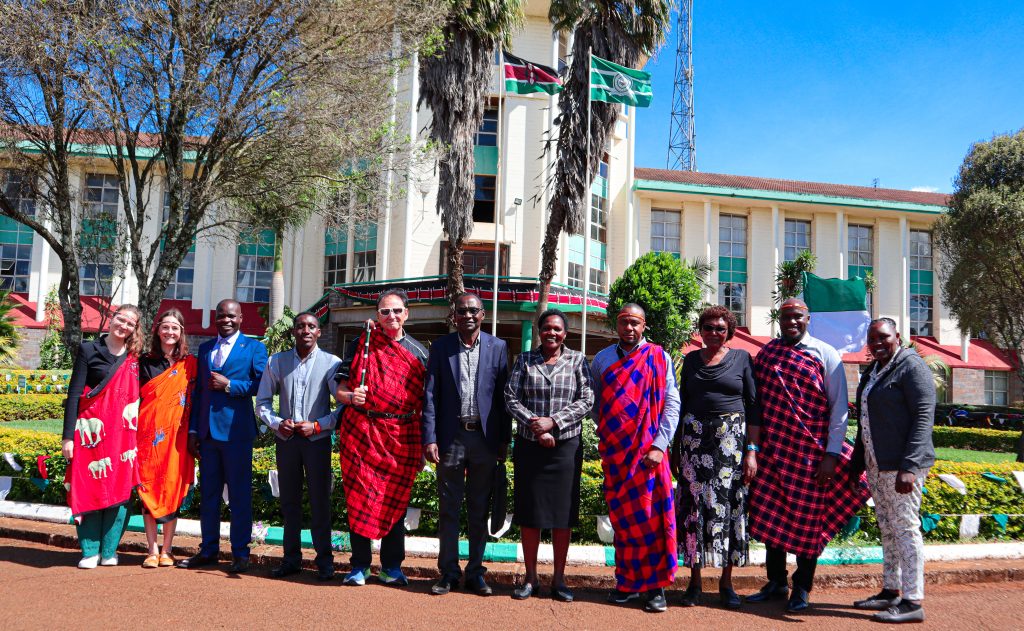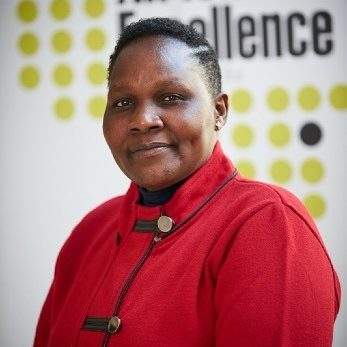In a bold stride towards transforming higher education through digital innovation and strategic collaboration and by extension, celebrating eleven (11) solid years of excellence, Moi University’s Centre of Excellence in East and South African-German Centre of Educational Research Methodologies and Management (CERM-ESA) recently welcomed a high-end delegation from the DIGI-FACE (Digital Initiative for African Centres of Excellence) leadership on Tuesday 23rd, September 2025. The visit, coordinated by Prof. Susan Kurgat, marked a significant milestone in ongoing efforts to expand digital capacity and enhance access to quality postgraduate education across Africa.
The visiting team comprised prominent figures from the DIGI-FACE leadership, including the Project Leader Ewald Eisenberg and the Project Coordinator Elisa Adams from the University of Applied Sciences Kehl (Germany), as well as Mr. Andrew Thuo (Learning Technologist) and Karlien Potgieter (Administrator and Coordinating Agent) from Nelson Mandela University in South Africa and Michael Kongo(Coordinator, CCAM). Their visit was a strong affirmation of the enduring partnership and mutual commitment to sustainable educational development, as well as support for the digital needs of the DAAD African-German Centers of Excellence.

Advancing Access through Strategic Engagement
The crux of the visit was a series of high-level consultations with Moi University’s leadership aimed at deepening collaboration and upscaling educational delivery through digital platforms. Key discussions focused on expanding access to learning for postgraduate students and co-developing innovative, short learning programs through the university’s resourceful Institute of Open, Distance, and e-Learning (IODL). These initiatives underscore a shared vision of inclusivity, flexibility, and academic excellence in postgraduate education, particularly in all the other disciplines of postgraduate studies.
The meetings reaffirmed a joint commitment to not only optimize existing platforms but also to pioneer new modalities of learning that respond to the rapidly evolving demands of the 21st-century knowledge economy.

Elevating the Student Voice
A defining feature of the visit was the direct engagement with DIGI-FACE platform beneficiaries and users, with Moi University Master’s students Tanui Alfred and Benjamin Marani Nyongesa, both from Cohort 9 of the DAAD Scholarship and Dr Philomena Chepsiror, an academic staff member sharing candid reflections on their learning experiences through DIGI-FACE. Their feedback emphasized the platform’s accessibility, user-centered design, and academic value. These interactions provided the delegation with vital first-hand user insights and a clearer understanding of the platform’s on-the-ground impact.
In a forward-thinking move, the DIGI-FACE team proposed involving students and alumni as volunteer ambassadors to support peer learning, co-create user-driven content, and enhance platform engagement. This strategy aims not only to strengthen community ownership but also to attract a broader user base and stimulate innovation from within the community.
Enhancing Reach Through Mobile Technology
Acknowledging the increasing need for mobile accessibility, the team also discussed strategies to extend DIGI-FACE resources through the Moodle Mobile App, thereby reaching students in low-bandwidth regions and expanding the platform’s inclusivity and usability. The move aligns with broader efforts to make digital learning more equitable and responsive to students’ varying technological realities.
Building for the Future
The visit concluded with a set of actionable recommendations focused on leveraging existing infrastructure and optimizing available resources. These include improving digital infrastructure, strengthening academic staff training in e-learning methodologies, and promoting cross-institutional knowledge sharing. The overarching goal is to ensure the long-term sustainability of the DIGI-FACE initiative while continuing to respond to the dynamic needs of African postgraduate learners.
A Shared Vision for Transformation
The DIGI-FACE leadership’s visit to Moi University serves as a testament to what can be achieved through purposeful international collaboration, rooted in the shared values of innovation, inclusion, and academic excellence. It reinforced the strategic partnership between Moi University, Nelson Mandela University, and the University of Applied Sciences Kehl, all of whom are united by a commitment to using digital transformation as a catalyst for educational equity and development across the continent.

As the DIGI-FACE initiative continues to grow, this engagement marks a pivotal step in its journey, one that promises not only to deepen impact but also to empower the next generation of African scholars and leaders through accessible, high-quality digital learning.
You must be logged in to rate posts.



